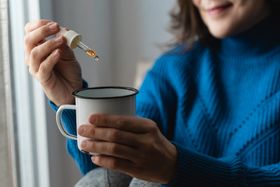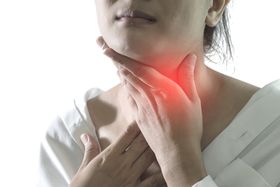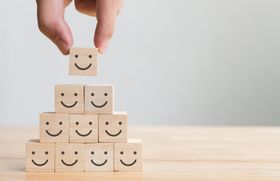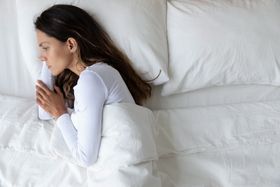What Stress Can Do to a Woman's Body: 6 Hidden Effects
Published April 10, 2023.
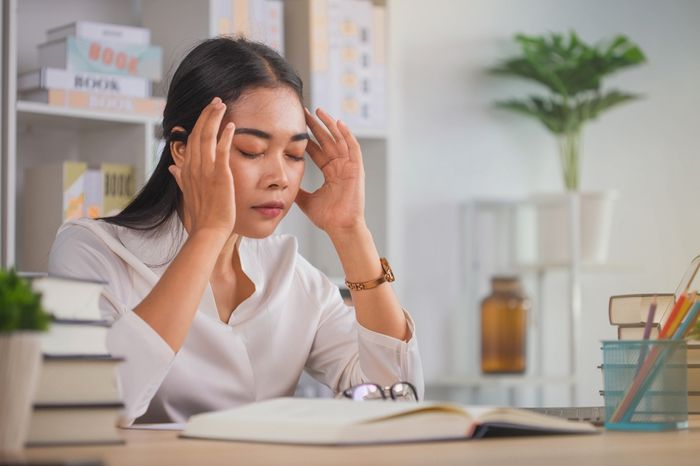
Emotional or physical stress can cause various adverse reactions in women that can lead to chronic problems ranging from intense anxiety and heart issues to chronic pain and skin problems (1). This can even impact your menstrual cycle and hormone balance, triggering fertility problems and hair loss.
» Develop your wellness routine with Cannabotech's personalised quiz
1. Inflammatory Skin Problems and Faster Ageing
Stress can cause or contribute to inflammatory skin problems like eczema, psoriasis, acne, and stress rash, which can exacerbate skin ageing. Ageing skin from stress can be hard to combat without resolving the root cause.
Treating these skin conditions with direct remedies is helpful because it may reduce the symptoms. However, to fully resolve these conditions and deal with the problem at its core, perceived emotional and physical stress needs to be reduced.
» Struggling with skin health? Here's how to develop an anti-ageing skincare routine that works
2. Chronic Pain
Stress is related to chronic pain in many ways, such as a general increase in inflammation (2). This can both cause chronic pain or even exacerbate existing pain.
Stress is the most common trigger for headaches of all types, with tension headaches being the most common (3). However, stress is also implicated in all types of migraines, including sleep deprivation headaches, either as a trigger or maintaining factor.
Stress is also the most common cause of muscle spasms and tense muscles, especially in the back, neck, and shoulders.
» Suffering from lower back pain? Discover the hidden causes and best physio exercises for pain relief
3. Weight Gain and Nutritional Deficiencies
There is evidence that stress can lead to unhealthy eating habits which can increase the probability of weight gain (4). When people have poor eating habits, nutrition is often affected which leads to further health issues that can range from skin problems to stomach disorders (pain, bloating, diarrhoea, constipation, etc.) and specific deficiencies like anaemia (5).
4. Late and Irregular Periods
Emotional stress has an impact on hormones which can be one of the causes of irregular periods, missed periods, and increases in period-related pain. Chronic stress can negatively affect fertility by interfering with the menstrual cycle and/or causing extreme weight loss (which can cause your cycle to stop altogether).
5. Issues During Pregnancy
Chronic stress-related problems prior to pregnancy can cause issues during pregnancy. For example, low blood pressure as a result of stress has been linked with poor nutrition supply, and stress hormones like cortisol released during pregnancy negatively impact the baby's cognitive development, increasing anxiety levels and fussiness (6).
In extreme cases, maternal stress can also potentially lead to premature birth.
6. Hair Loss
Stress can cause or contribute to hair loss in a variety of ways:
- Telogen effluvium Stress causes hair follicles to go into a resting phase, triggering extreme shedding. Though this is upsetting to many, this type of hair loss is usually reversible.
- Alopecia areata This autoimmune condition can be caused or triggered by stress, often causing minor bald patches but may also trigger drastic hair loss on the scalp and other parts of the body.
- Trichotillomania An impulse control disorder where a person has the compulsion to pull out their hair, both on their scalp and body, that can be triggered or worsened by stress.
None of these are necessarily permanent and regrowth is likely if the symptoms of stress are dealt with.
» Need an alternative therapy for hair loss? Discover the benefits of Reishi mushrooms for hair health
Help Yourself Live Stress-Free
Managing stress as an adult woman is the best way to prevent these physical impacts, and there are many things you can do at home. A daily practice that includes a balanced diet, regular exercise, mindfulness, and adequate nutrition can help lower the probability of stress-related illness.
» Need help lowering your stress? See our top stress-relieving tips for adult women




